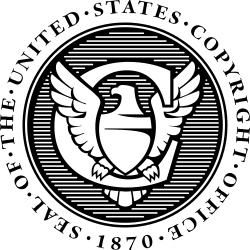Copyright Claims Board Finds in Favor of Right of First Sale

Back in May 2023, I took a look at the Copyright Claims Board (CCB) case 22-CCB-0058: Shocked v. Billington. At the time, it was one of a handful of openly contested cases before the CCB. It also dealt with an unusual topic for the board: The right of first sale.
Now, almost a year later, that case has been resolved, with the board handing down its final determination. There, the board sided with the respondent and upheld the right of first sale.
The case pitted musician Michelle Shocked against an eBay seller named James Billington. According to Shocked, Billington was selling an unlicensed CD of her music named The Texas Campfire Tapes.
Billington, however, claimed that he had purchased the CD from a thrift store and was simply reselling his legally-acquired copy online. He even provided a receipt from the Goodwill store to prove that he had purchased it.
However, Shocked argued that, since the CD was not authorized, the right of first sale did not apply. She claimed that the CD itself was a bootleg and that the online posting represented unauthorized distribution of her work.
The CCB, for its part, sided with Billington completely, dismissing the claims against him with prejudice. Barring an appeal to the Register of Copyrights, this effectively brings an end to the case before the CCB.
That said, it’s worth taking a moment to understand why the CCB reached the conclusion it did and what it could mean for other filers.
A Dispute Over Authenticity
There didn’t seem to be much dispute over what Billington actually did. Instead, the actual dispute was over the CD itself and whether it was authorized. Shocked said that her record label at the time, Polygram Records, either never released the CD or released it without authorization.
However, her argument was weakened by a simple problem: She was unable to produce her original 1988 agreement with Polygram Records. She was able to produce two copyright transfers, one in 1999 and another in 2002, that showed the songs were transferred back to her. However, she did not have a copy of the original 1988 agreement.
The CCB examined those transfers and found that, for them to be valid, it would mean Polygram had the rights to the songs between 1988 and 1999. Since the CD (according to the cover) was published by Polygram records and had a release date of 1988, it made sense that Polygram was the rightsholder at the time.
This theory was further supported by a copyright registration that said the works were first published in April 1988. PolyGram Records was the claimant on that registration.
In short, the board found that there was no evidence the CD was unauthorized. All evidence indicated that PolyGram Records was both the rightsholder and the publisher at the time of publication.
That, in turn, made it a simple first sale dispute, which the board sided with Billington on.
A Harsh Rebuke
In handing down the final determination, the board issued a hard rebuke of Shocked saying:
This is a case that should not have been commenced and, in any future filings, Shocked should consider whether she is attempting to stretch copyright law too far. It is clear that Billington simply bought what he rightfully had reason to believe was a legitimate copy of a Michelle Shocked album distributed by a major label, and then later attempted to lawfully resell the Album for a small amount on eBay.
Copyright Claims Board
However, the board stopped short of finding Shocked to be in bad faith and ordering her to pay Billington’s costs. Saying that, “Given that Claimant is pro se and truly seems to believe her asserted, albeit meritless, reasons for bringing this case, the Board declines to make such a finding at this time.”
Since Shocked filed this case, she has filed six other claims with the CCB, each for different matters. At the moment, four cases are being disputed, one was recently approved, and the last one is being investigated for possible bad-faith conduct.
Clearly, Shocked is a claimant to watch at the CCB, especially given how many of the cases are contested and deal with issues involving the music industry.
Bottom Line
In the end, this case is an unusual one for the CCB. Simply put, most CCB cases don’t deal with issues like the first sale doctrine and copyright transfers.
Here, the CCB did a great job parsing the facts and came to a reasonable conclusion based on the evidence presented. Simply put, there’s no evidence that the CD is unauthorized or that Billington did anything unethical or illegal.
The case does an excellent job of showcasing the breadth of the CCB and the kinds of cases it can address. It’s made all the more impressive by the fact both parties were pro se. Neither side had a lawyer, but they were able to present their arguments and the CCB was able to decide the issue.
For the CCB, that is very remarkable. This helps ease concerns that the CCB would not be accessible to laypeople or that the board would struggle with more complex copyright matters. Here, the CCB proved its merit in both areas.
While the case is a significant win for Billington, it’s also a win for the CCB, which once again proved its capabilities.
Want to Reuse or Republish this Content?
If you want to feature this article in your site, classroom or elsewhere, just let us know! We usually grant permission within 24 hours.
